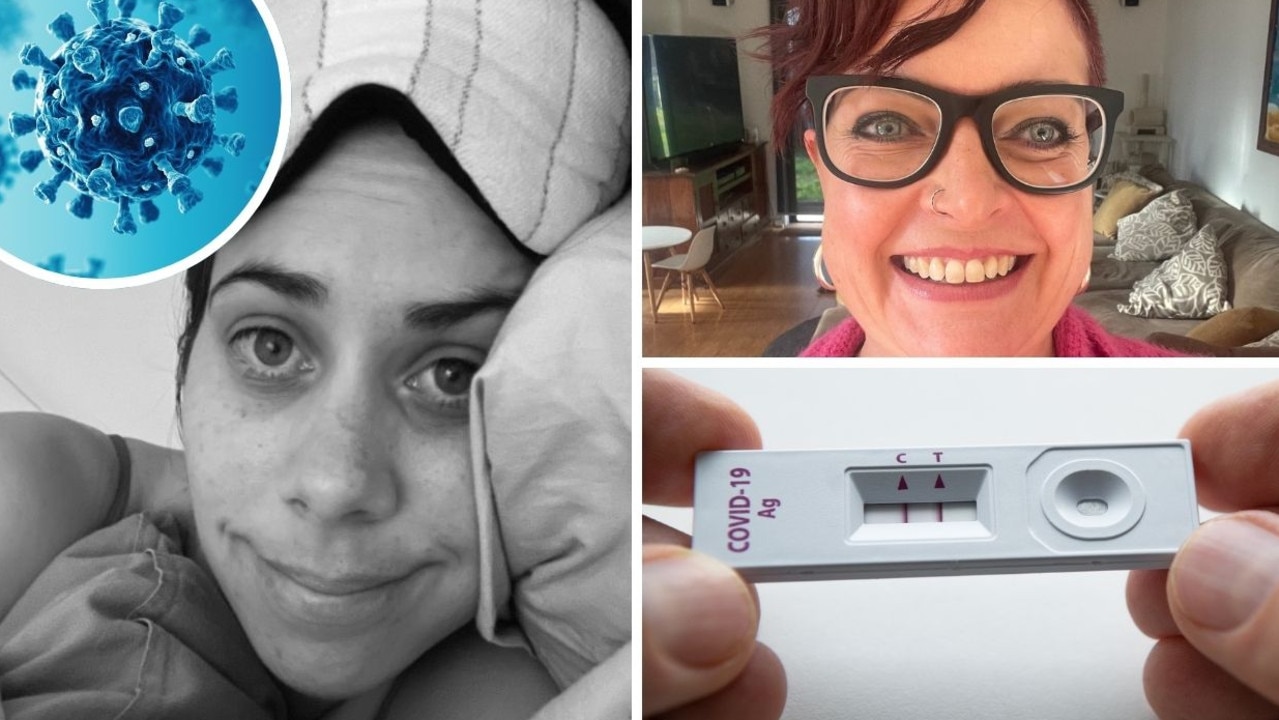Covid-19 vaccines: Your booster questions answered
Covid-19 vaccines may be less effective against new variants like Omicron, but Australia is accelerating its booster rollout anyway. Here’s what you need to know.
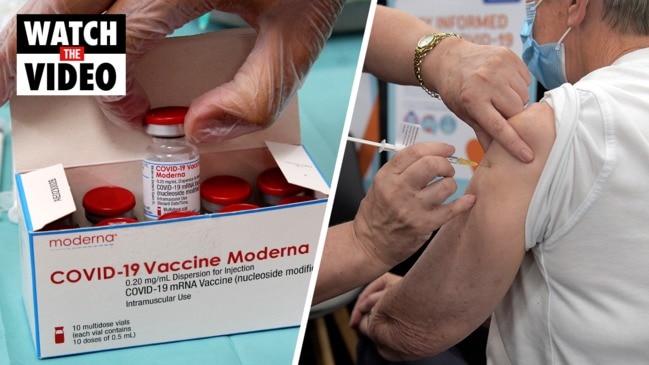
Coronavirus
Don't miss out on the headlines from Coronavirus. Followed categories will be added to My News.
More than 40 million Covid-19 vaccines have been administered in Australia, with more than 89 per cent of eligible Australians over 16 having received a full two-dose regimen.
As the vaccination rollout progresses, the Department of Health has moved up its booster program to begin a month earlier than planned.
More than 683,000 have already received a booster shot. In an effort to get ahead of the Omicron variant, the booster shots have been approved after five months instead of six, making an additional 1.5 million Australian eligible for a booster. By January, 4.1 million will be eligible for a booster.
WHO IS ELIGIBLE FOR A BOOSTER?
Anyone older than 18 with two doses of either Covid-19 vaccine will eventually be eligible for a third, booster dose five months after their second shot.
While originally planned for six months, the booster timeline was accelerated amid concerns about the spread of the new Omicron variant.
The booster rollout will begin with people prioritised at the beginning of the vaccination program, including people aged over 50, residents of aged care and disability facilities, Aboriginal and Torres Strait Islanders, and people at increased occupational risk of Covid-19.
Boosters are not currently recommended for anyone younger than 18.
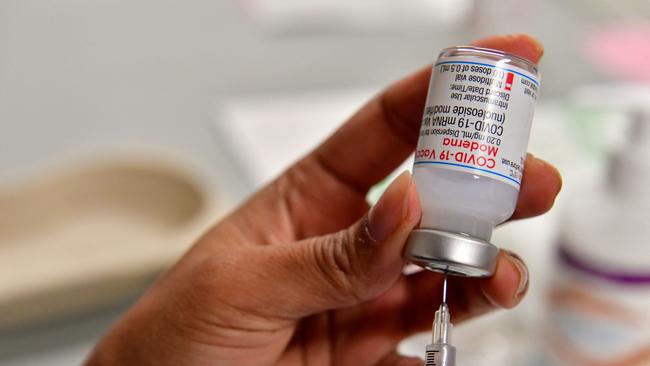
WHY SHOULD I GET A BOOSTER?
The effectiveness of the current vaccines begins to decrease between six to eight months. Taking a third dose increases effectiveness of the vaccine at preventing severe disease and death from Covid-19.
Booster shots are separate from an “additional dose” of the vaccine, which is recommended for people with weakened immune systems.
Vaccines were effective in enhancing antibody response from 28 days after a booster shot, according to a recent study published in The Lancet.
HOW LONG WILL A BOOSTER LAST?
Researchers are still studying whether booster shots will last as long, longer or less than the original dual doses. The original clinical trials for the vaccines didn’t account for waning effectiveness or the need for additional boosters to maintain their efficacy. Therefore, the long-term efficacy of the boosters, and whether there will be the need for another shot, and then another or another, is currently unknown.
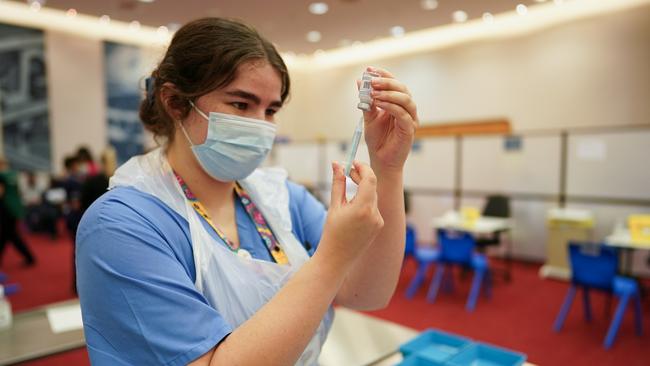
HOW EFFECTIVE ARE BOOSTERS AGAINST DELTA AND OMICRON VARIANTS?
Current vaccines have been shown to provide protection against severe disease and death from the Delta variant.
Omicron, however, has been shown to evade some of the immune protection from the vaccines. A study in South Africa suggests Pfizer provides only partial protection from Omicron, while Moderna chief executive Stephane Bancel has predicted existing vaccine will be less effective.
As a result, companies including Johnson & Johnson and Moderna are pursuing Omicron-specific versions of their vaccines and boosters, which would likely not be ready until 2022.
WHICH VACCINE SHOULD I GET AS A BOOSTER?
The Australian Technical Advisory Group on Immunisation recommends the Moderna vaccine be used as a booster dose for any Covid-19 vaccine registered or recognised by the Therapeutic Goods Administration, which includes Moderna, Pfizer, AstraZeneca and Janssen.
They recommend either Moderna or Pfizer over the AstraZeneca Covid-19 vaccine as a booster dose, even for those who received the AstraZeneca vaccine as their primary dose.
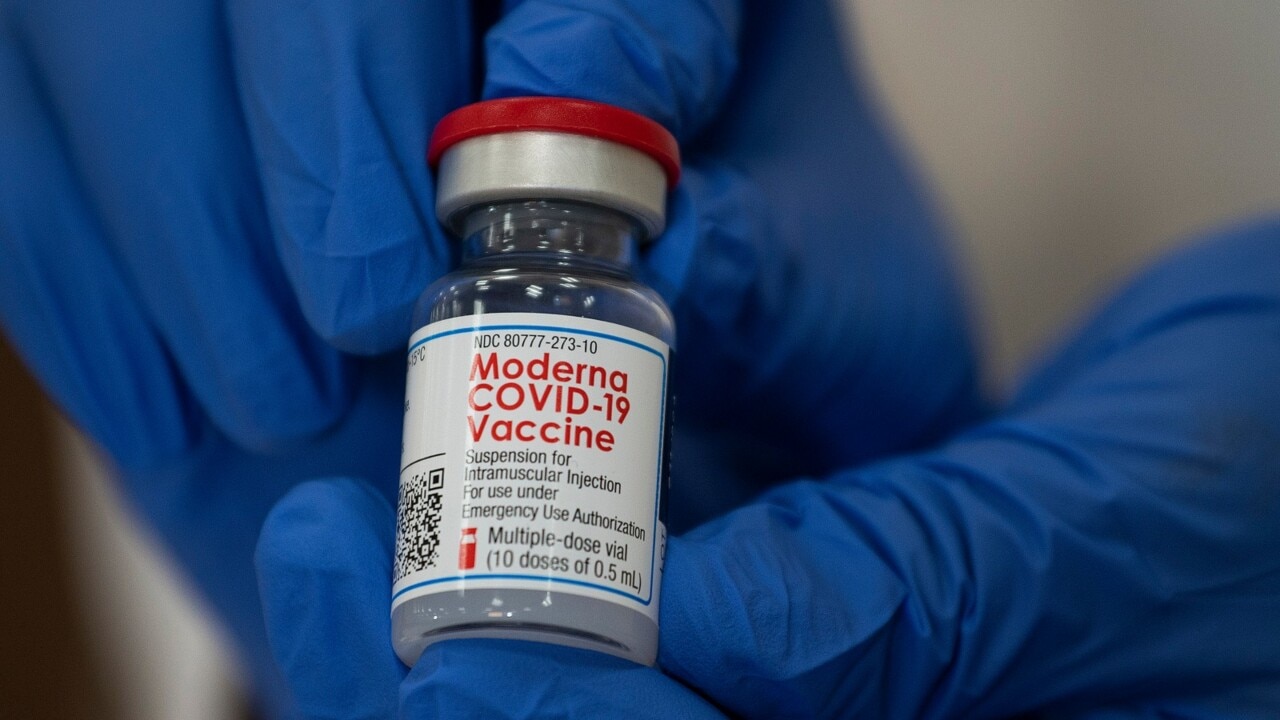
The AstraZeneca vaccine is not approved for a booster dose in Australia, but it can be used as a booster for people who had adverse reactions to the mRNA Covid-19 vaccines, or who have had two doses of the AstraZeneca jab for their primary course.
WHICH IS THE MOST EFFECTIVE BOOSTER?
While mixing and match vaccines as boosters is authorised, there isn’t any long-term data on the safety of boosting with a different version of the vaccine than the original dose.
Mixing and matching, however, may increase protection depending on which dose was taken originally. A recent study from the Baylor College of Medicine found the most effective combination was two doses of the Moderna vaccine boosted by a third Moderna shot.
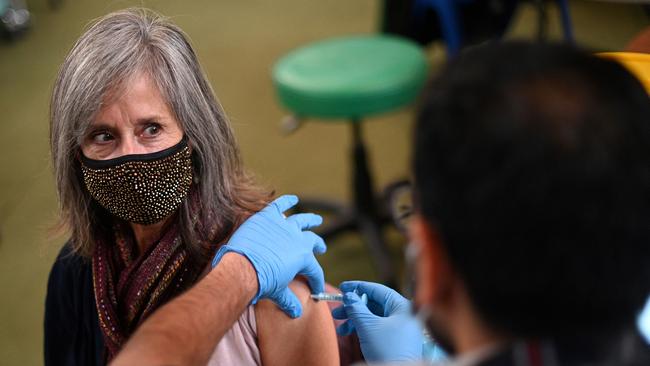
The second best immune response was created by two-doses of Pfizer’s vaccine boosted by a Moderna shot. The third best was two doses of Moderna boosted by a third dose of the Pfizer vaccine.
ARE THERE ANY DIFFERENCES BETWEEN THE VACCINE BOOSTERS?
The Pfizer booster is the same 30 microgram dosage as the first two vaccine shots.
The Moderna booster, however, is a half the original vaccine dosage of 100 micrograms. The 50 microgram dosage of the booster regimen has been designed to reflect the clinical trials that found a half-dose was effective at providing a “strong immune response”.
While the Moderna vaccine and booster is most effective against Covid-19, the increased dosage of mRNA means the potential side effects are the most intense of existing vaccines. Those with a Pfizer vaccine who boost with Moderna may notice more side effects, while those who stick to the same brand as their original vaccine should feel about the same as they did after receiving their second dose.
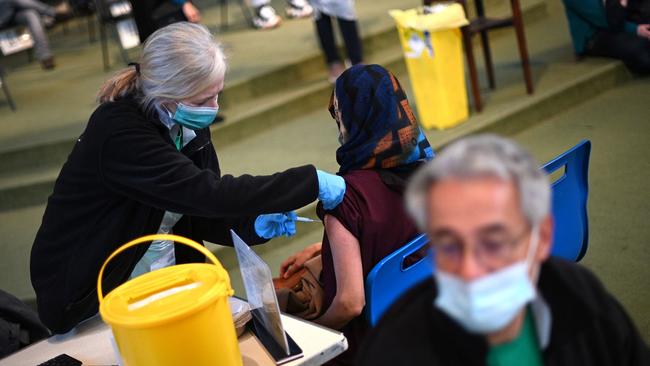
WHAT ARE THE RISKS OF A BOOSTER?
Risks of booster shots reflect those of their original vaccine doses, which commonly include fatigue, headaches, fever, and pain at the site of the shot.
The mRNA technology used by Pfizer and Moderna vaccines have also been linked to rare heart conditions like myocarditis and pericarditis.
Myocarditis is when the heart muscle becomes inflamed and may not be able to pump blood effectively, whereas Pericarditis is a condition in which the lining of the heart becomes inflamed.
Symptoms of these include chest pain, shortness of breath, heart palpitations, fevers and abnormal swelling of feet and legs.
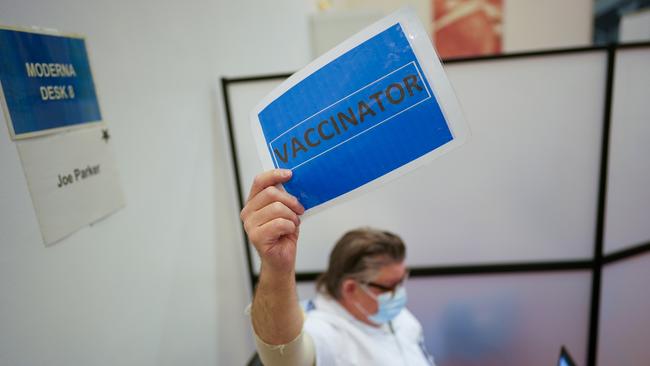
Young men between 12 and 29 are most at risk of developing either Myocarditis or Pericarditis, followed by women in the same age range, according to the World Health Organisation.
The AstraZeneca vaccine is associated with thrombocytopenia syndrome, or blood clots, that occurs between four and 42 day of vaccination. Symptoms can include abdominal pain and/or severe headache
HOW DO I BOOK A BOOSTER APPOINTMENT?
Booster shots are free and will be available at health clinics and pharmacies based on availability.
Appointments can be booked at the Department of Health’s Vaccine Clinic Finder.
Originally published as Covid-19 vaccines: Your booster questions answered


